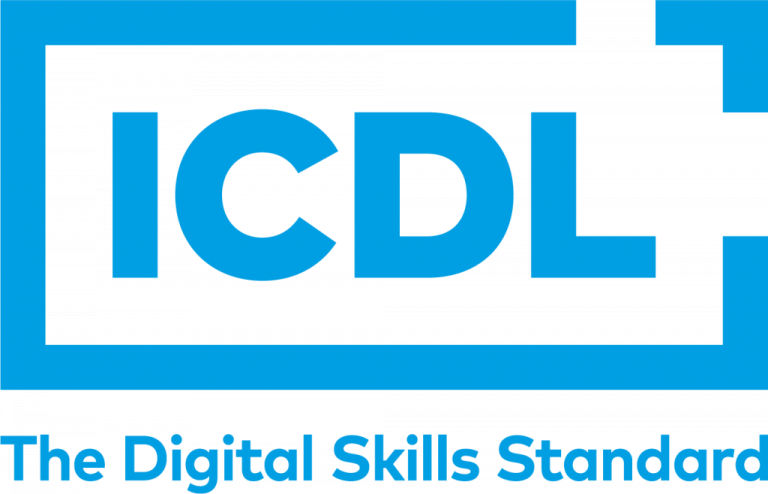ICDL Insights
Organisations are being exposed to an increasingly dynamic and fast-paced technology landscape. Service providers and consultants, the media, and policy makers are constantly promoting or discussing emerging technologies that may have a substantial – and systemic – impact on our economies and societies. As individuals and as employees, we need to be informed about what technologies are likely to have the most impact, as well as their underlying concepts and potential. This will help us to be informed – and will help our organisations make informed choices.
Designed to address the requirement for current and future business managers to develop an understanding of trending and emerging technology, ICDL Insights offers overview modules that are contextualised in a practical way. These short, introductory modules provide the conceptual understanding to allow managers who are not IT professionals to consider the potential of technology and have informed conversations with IT professionals or specialists.
ICDL Insights contains a range of modules which can be combined with other ICDL modules to create a unique ICDL Profile. The syllabus content of each module is supported by high-quality elearning materials that establishes core concepts, gives practical examples of implementation, and provides opportunities for reflection. Together with a short certification test, this learning can provide a excellent opportunity either to develop relevant competences for future career development, or to contribute to continuous professional development.
ICDL Insights modules
Short modules for business managers who are not IT professionals, which provide conceptual understanding of trending and emerging technology
Designed to address the requirement for current and future business managers to develop an understanding of trending and emerging technology, ICDL Insights offers overview modules that are contextualised in a practical way. These short, introductory modules provide the conceptual understanding to allow managers who are not IT professionals to consider the potential of technology and have informed conversations with IT professionals or specialists
ICDL Insights contains a range of modules which can be combined in any way to create a unique ICDL Profile. The syllabus content of each module is supported by high-quality elearning materials that establishes core concepts, gives practical examples of implementation, and provides opportunities for reflection. Together with a short certification test, this learning can provide a excellent opportunity either to develop relevant
competences for future career development, or to contribute to continuous professional development.
The modules in ICDL Insights are:
Trending and emerging technology
Module overview
| Unit | Content |
|---|---|
| Unit 1 |
|
| Unit 2 |
|
| Unit 3 |
|
| Unit 4 |
|
| Unit 5 |
|
| Unit 6 |
|
| Unit 7 |
|
Main learning outcomes
The Cloud Computing module consists of e-learning followed by a brief certification test. Together, these components deliver a short, focused professional development solution.- – Understand key concepts relating to cloud computing
- – Recognise the features, benefits, examples, and limitations of Infrastructure as a Service (IaaS)
- – Recognise the features, benefits, limitations and provide examples of Platform as a Service (PaaS)
- – Recognise the features, benefits, limitations and provide examples of Software as a Service (SaaS)
- – Identify features and examples of Function as a Service (FaaS)
- – Know about the different models for implementing cloud computing in organisations
- – Consider appropriate solutions and models for implementing cloud computing in a given scenario or situation.
Module overview
| Unit | Content |
|---|---|
| Unit 1 |
|
| Unit 2 |
|
| Unit 3 |
|
| Unit 4 |
|
Main learning outcomes
The IoT module consists of e-learning followed by a brief certification test. Together, these components deliver a short, focused professional development solution.- – Understand key concepts relating to Internet of Things (IoT), including common structure and requirements
- – Recognise examples of consumer, commercial, industrial, and infrastructural applications of IoT
- – Identify current trends in IoT, including the evolution of IoT components and the important role played by governance.
- – Understand ethical, security, and interoperability considerations around adoption of IoT, and consider how IoT could be implemented in a given scenario
- – Consider appropriate solutions and models for implementing cloud computing in a given scenario or situation
Module overview
| Category | Content |
|---|---|
| What is Artificial Intelligence (AI)? |
|
| How does AI work? |
|
| Common AI examples |
|
| AI adoption: challenges and potential |
|
Main learning outcomes
The Artificial Intelligence module consists of elearning followed by a brief certification test. Together, these components deliver a short, focused professional development solution. On completion, candidates will be able to:- – define Artificial Intelligence and recognise the stages and development milestones
- – understand how AI works, including the key principles underpinning AI
- – define the terms machine learning, neural network and deep learning and the characteristics of each
- – identify the need for AI and recognise examples of how AI supports data mining, natural language processing and decision making
- – recognise the limits, ethical guidelines, social and economic impact, as well as the potential and implications of AI
Module overview
| Category | Content |
|---|---|
| What is big data? |
|
| The big data environment |
|
| Big data in practice |
|
| Big data adoption |
|
Main learning outcomes
The Big Data module consists of e-learning followed by a brief certification test. Together, these components deliver a short, focused professional development solution. On completion, candidates will be able to:- – understand the term big data and its evolution, and recognise drivers behind its expansion
- – recognise key aspects of big data relating to storage technologies, analysis, and visualisation
- – recognise examples of big data implementation in a range of sectors
- – identify considerations for adoption of big data, including investment, practical challenges, business potential, and ethical issues
- – recognise steps for exploiting big data in a specific scenario or situation
Industry 4.0 (coming soon)
ICDL ATC (Accredited Test Centre)
Why certify with ICDL?
- ICDL certification is internationally recognised by employers and institutions.
- ICDL modules are developed with input from computer users, subject matter experts, and practising professionals from all over the world.
- The regularly updated syllabus content reflects day-to-day tasks and responsibilities typical of job roles.
- ICDL modules focus on skills acquisition as well as an understanding of concepts.
- ICDL syllabus content is vendor-independent so that skills and knowledge are transferable.
- ICDL has rigorous Quality Assurance Standards (QAS) and regular quality audits are conducted internally and externally.


